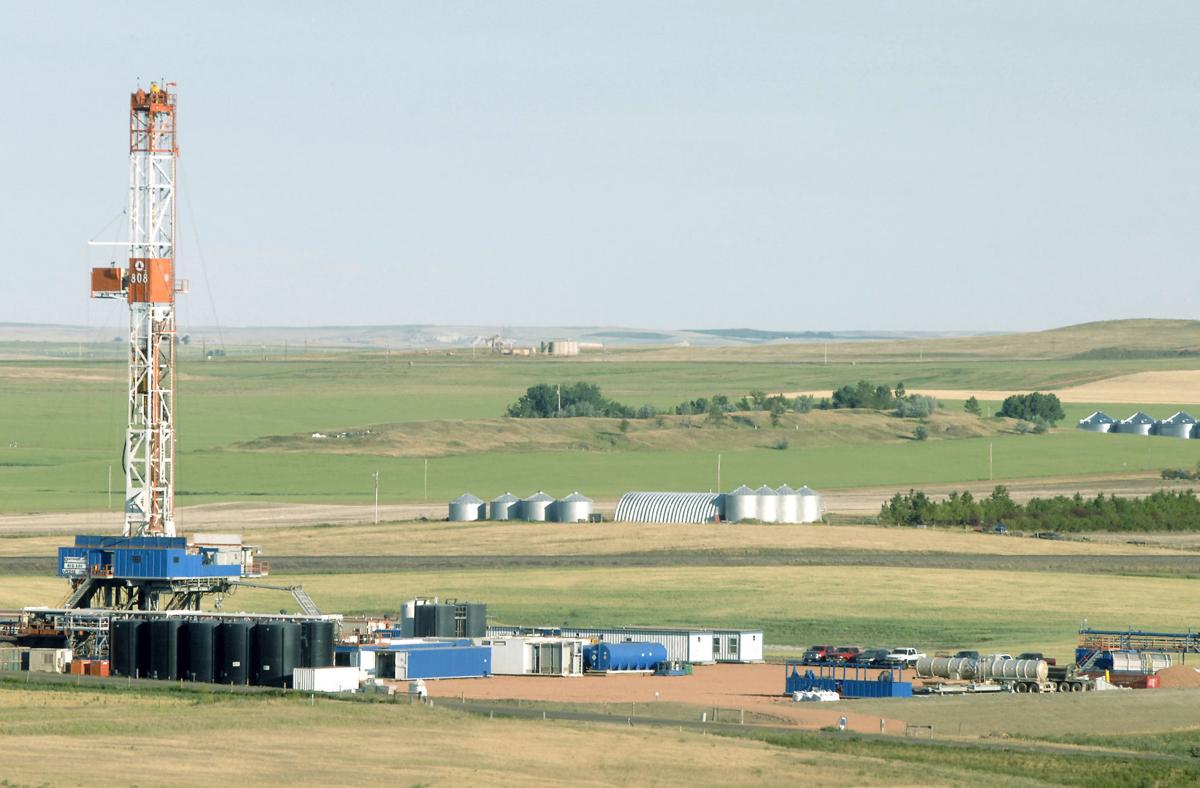Page added on July 16, 2017
Worker shortage slows Bakken oil development

North Dakota oil production decreased 1 percent in May but remained slightly above 1 million barrels per day, according to the Department of Mineral Resources.
Oil producers are drilling Bakken wells faster than they can bring them online due to a shortage of experienced workers, Director Lynn Helms said Friday.
“There’s a great amount of frustration about not being able to get the trained personnel to be able to hydraulically fracture wells as fast as they can drill them,” Helms said.
The number of wells that have been drilled but are waiting on fracking crews was estimated to be 830 at the end of May, unchanged from a month earlier.
Companies planned to make significant progress on that backlog this year, but have been unable to get ahead due to a lack of trained fracking crews. In some cases, operators have let contractors go after they showed up with too many inexperienced workers, Helms said.
Oil production was 1.04 million barrels per day in May, preliminary figures show, from a record 13,876 producing wells.
Fifty-eight drilling rigs were active in North Dakota on Friday, about eight more than Helms said he anticipated for this year.
It’ll be another month before statistics are available that show the impact the Dakota Access Pipeline is having on oil transportation in North Dakota.
Justin Kringstad, director of the North Dakota Pipeline Authority, said June figures will show a decline in rail transportation of crude oil, but it’s unclear how much the drop will be.
In May, about one-fourth of the crude oil produced in the Williston Basin was transported by rail, or about 275,000 barrels per day, Kringstad said. Seventy percent of oil was transported by pipeline.
Helms said he’s surprised that Dakota Access has not yet had an impact on North Dakota oil prices. The price of North Dakota sweet crude was $35.25 a barrel on Friday, according to a figure Helms cited from Flint Hills Resources.
The price for West Texas Intermediate crude was more than $46 a barrel on Friday, according to Bloomberg.
Helms said he expects the price for North Dakota sweet crude to be within $6 or $7 of the WTI price with Dakota Access making transportation costs more competitive. The 1,172-mile pipeline ships oil from the Bakken to Patoka, Ill., en route to refineries in the Gulf Coast.
“I thought that with DAPL firing up in June that by now we would see that differential shrink,” Helms said. “That’s going to take some more research.”
Kringstad said he thinks it will take longer for Dakota Access to affect oil prices.
“I think it’s going to take six months, it may even take up to a year, before we really settle into what the new normal is going to be with that system in service,” he said.
Natural gas production increased 1 percent in May to an average of 1.85 billion cubic feet per day, hitting another all-time high, according to the preliminary figures.
The percent of natural gas flared in May was 10.1 percent, relatively unchanged since April.
4 Comments on "Worker shortage slows Bakken oil development"


Go Speed Racer on Sun, 16th Jul 2017 12:40 pm
Hmmmm a million barrels a day
from 13000 producing wells.
So each well only produces maybe
80 barrels a day. Oops.
twocats on Sun, 16th Jul 2017 1:57 pm
technological innovation and cost efficiency measures in bakken shale – interpretation – pay your servicing companies less.
how’s that working out for ya?
Anonymous on Sun, 16th Jul 2017 2:01 pm
Well this turned out just like The Oil Drum predicted (150-250K per Piccolo or 600-700 bpd per Rune). I wonder why that website shut down given it was so accurate and never exaggerated in the peaker direction?
Cloggie on Mon, 17th Jul 2017 3:09 am
So each well only produces maybe 80 barrels a day. Oops.
80 barrel, that is 12560 liter of 8 kWh each is 100480 kWh or the energy produced by 100480 grownup men during a very hard day of labor.
And this energy is produced by a crew of a few men (once the well is in place).
Interestingly, the equivalent of these 80 barrels per day (or 88 rather) could also be produced by a single 6 MW offshore wind tower. Calculation here:
https://deepresource.wordpress.com/2017/01/07/gold-mine-north-sea/
The advantage being that these wind towers can produce 88 barrels/day equivalent during 30 years (and probably much, much longer, provided there is proper maintenance). Additionally there is no such thing as a “dry hole” in the offshore wind business. Just ram a monopile in the seabed and you are good.